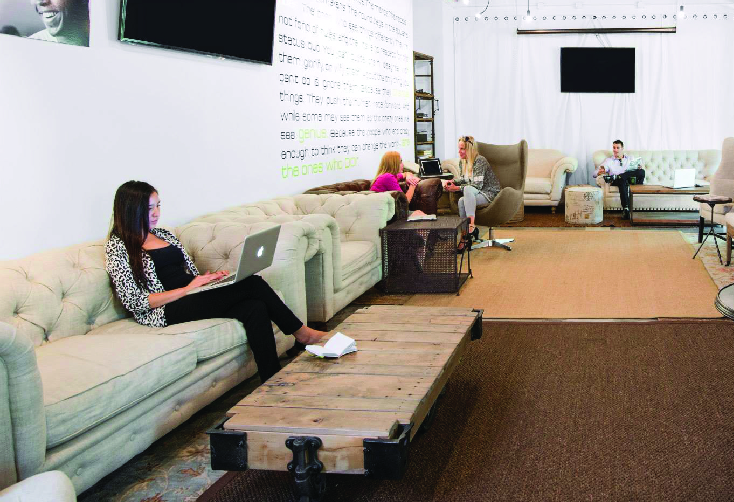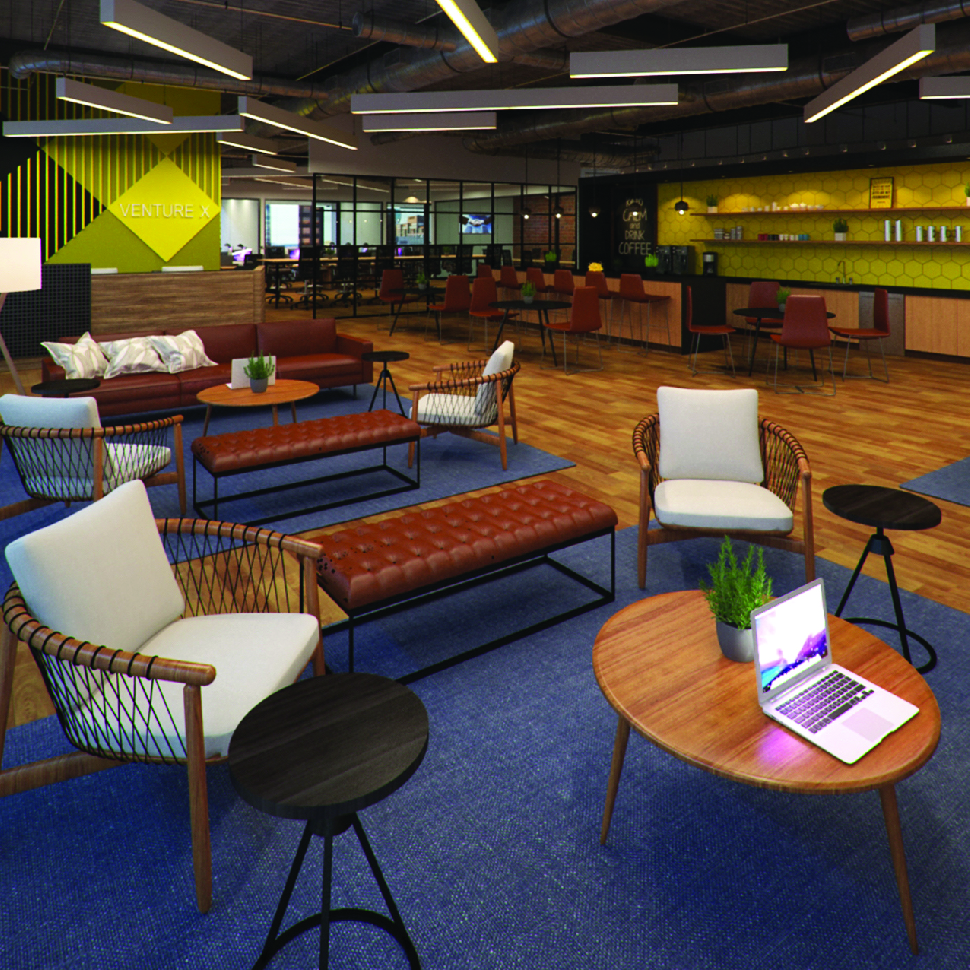This month at Allwork, we’re going back to school… well, sort of. Coworking has grown up, it’s evolved, and it’s now become more desirable both among potential users and real estate owners. In the midst of all the growth, the craziness, and the success, we believe it’s important we don’t leave some of the basics behind.
Today, we’ll be talking about growth strategies. While some coworking giants like WeWork, UrWork, and Industrious lean towards more traditional means of growth like raising funds through venture capital or strategic partnerships with investors; others like Venture X, Serendipity Labs, and Office Evolution have found that there are other ways to power their brand’s growth — nationally and internationally.
Venture X recently announced that it will open 14 new locations before the first quarter of 2018 ends. We spoke with David Diamond, co-founder of Venture X, about the brand’s growth strategy, coworking basics, and the future of the industry.
Venture X opened the doors of its first location in Naples, FL in October of 2012, and although their plan from the get-go was to be able to “open up quickly nationally and internationally”, the founders have wagered their time in order to get their workspace and business model right.
“Back in 2012, coworking was still developing,” Diamond comments, “I wanted to research the model, to find out what other potential markets existed for coworking. My son and I traveled across the US visiting various coworking spaces along the way; we wanted to learn what worked where, why, and how we would differentiate ourselves from others.”
“This is a great industry, the coworking one, and there are a variety of types of spaces. As we traveled along the US we realized that a lot of the spaces are niched; some cater to big niches, but they are niched nonetheless. We wanted to create a model that would appeal to a broad audience… and we did.”
Venture X partnered with design firm, Gensler, to design what Diamond calls “more of a premium model of coworking”. Premium in the sense that they used high-end furniture, and premium also in the sense that they found the right balance of space at a ratio of 90% private offices, 10% common areas.
“This mix gives the place the right vibe. I’ve come to learn that most people want a private office when they can afford it, without sacrificing the community feel; which is why our private offices have 3 solid walls and 1 glass wall.”

But let’s get back to the topic at hand: why wait until now (4 years later) to boost their growth?
“We knew there were 2 ways we could go: venture capital or franchising. To be honest, we really liked the idea of the franchise model as it would allow us to work closely with entrepreneurs and those involved with the local community.”
“When you open with people who already have a strong presence in the area, have a connection to the community and are familiar with the market, it adds to the success of the brand and model. Also, franchising financially made sense to us.”
Diamond tells us that they have been fine-tuning the details of their franchise model for quite some time now, but that they were waiting for the right moment to officially launch it.
“We worked with United Franchise Group, and we became a franchise model last February (2016).” Diamond was, to some extent, waiting for coworking to truly take off before setting out to sell his franchise.
“It’s fascinating; it (coworking) is surprising everybody. When we started building, owners would refuse operators that wanted to open a coworking space in their building. It took them a while, but they are catching up now. Today, coworking is desirable; building owners have discovered that coworking spaces are a great solution to make their buildings more appealing.”
Good things come to those who wait
Within just 18 months of working as a franchise, Venture X has found what works for them when it comes to picking out franchisees.
According to Diamond, there are 3 categories of franchisees “that work really well for us”:
- One quarter of our franchisees are building owners. They are great franchise owners because they understand the real estate industry and the commercial market; it’s a great asset when it comes to initial costs.
- Another quarter are individuals/companies that operate in the hospitality industry; they previously owned or currently operate hotels. They are attracted to our industry and model because it’s similar to the model they use with their hotels. Also, workspace-as-a-service is part of the hospitality industry.
- The rest of our franchisees are entrepreneurs. We enjoy working with them as we have a training program that provides resources for entrepreneurs to better manage and administrate the business model. Besides, they have the right mindset for working in the coworking industry”
Diamond and the rest of the team have found current and potential franchisees at different franchise trade shows. “We’ve attended various events in the US, we’ve gone to Australia, and there is one in Paris coming up.”
For the time being, Diamond confesses that “we are very pleased with the traction that we’ve gained. Our first franchise location opened in San Antonio, TX, this past May, and it’s performing so well that the franchisee purchased in 3 more cities. This was the best way he could have proved to us that he was pleased with the results.”
Yet like any business model, franchising doesn’t come without its challenges. Operators considering this growth strategy need to choose their choice of franchise partner carefully.
“We have a system or process that we use to approve all potential franchisees. It requires a lot of time, travel, and commitment. We train every single franchisee and their team in Naples. Then for the opening day, we fly out to their location and stay for a few days to make sure everything is up and running to our standards. It is an ongoing process.”
Closing up the conversation, Diamond shared the basics that he believes all operators — regardless of niche, of size, of model — should get right:
- “Services are really important, which is why you need to hire an exceptional community manager. We suggest hiring them from the hospitality industry. Members want to share, engage, and be inspired by the community — the right community manager will be an enabler for all of these criteria.”
- “You have to find the right mix of offices and work environments that works for your target audience. Having the right energy within the space has a lot to do with the layout and distribution of the space. Always remember that people are there to work, they need their privacy; but they also want to meet and connect organically and naturally with others.” Make sure you can cater to this.
- “Technology infrastructure is where you can’t afford to go wrong. Internet is crucial, we all rely and depend on it.” Make sure you understand where technology is so that you can offer the best to your members; you also need to consider city or neighborhood limitations, but in all cases, make sure your infrastructure can support your members.
To read more about how the franchise model can help workspace operators power their growth, click here.

















